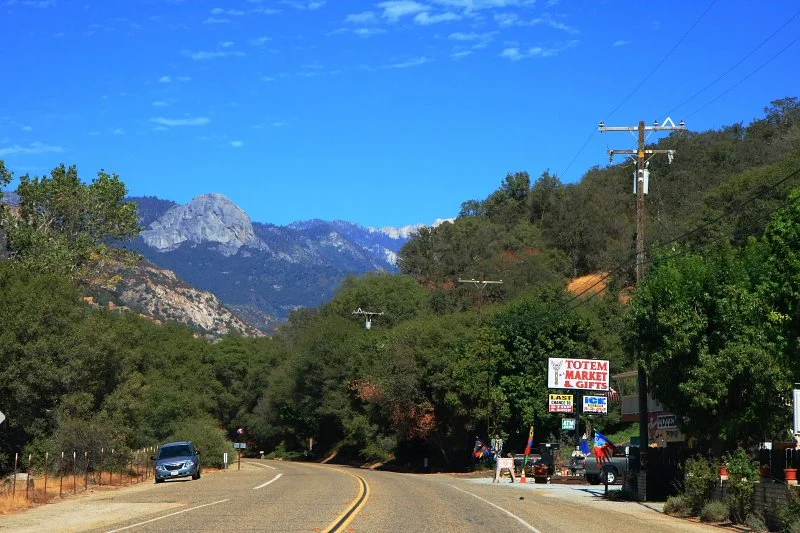Amid the picturesque landscapes and quaint charm of small towns, a quiet battle emerges over the impact of vacation rentals on local communities.
Airbnb logo on phone screen. Ivan Radic. CC BY 2.0
Towns in California have found themselves at a crossroads between economic success and community preservation. While Airbnb offers a supplemental income for homeowners and increased accessibility to nature, its effect on local communities is often overlooked. Since its establishment in 2007, Airbnb has arguably become a leading driver of gentrification, displacement, and rising housing costs. Vacation rental companies like Airbnb often attract upscale, hipster businesses, which in turn drive up property values. When homes are converted to Airbnb rentals, long-term rental housing stock in a given area is reduced, and cheap long-term rentals are limited for low-income families. Small towns in close proximity to national parks or ski resorts have become more expensive in the past year. According to Redfin, Big Bear Lake home prices are up 12.7% compared to last year, selling for a median price of $637K. Similarly, Lake Arrowhead home prices are up 12.6% compared to last year, with a median home price of $725K.
Route 198 in Three Rivers. Patrick Pelster. CC BY-SA 3.0
Three Rivers, CA, a town at the base of Sequoia National Park, has experienced significant gentrification and rising housing costs in the past year. Three Rivers home prices are up 54.6% compared to last year, up to a median price of $920K. As an Airbnb host, you can potentially make three to four times the amount of money you make renting your apartment long-term. With a population of 2,496, there are over 900 Airbnb rentals in the Three Rivers area. “I think the unregulated development of the Airbnb market has destabilized the community. It’s nearly impossible to find affordable housing, as long-term rentals are increasingly rare. This has a direct effect on lower-income individuals, like service workers or seasonal staff,” says Juanita, an employee at Sequoia National Park. “The vacationers are dispersed throughout the community as opposed to consolidated.”
Most locals view vacation rental companies as a two-way street. An increase in tourism has a positive impact on local businesses, most of which suffered during the pandemic. “Three Rivers has been a home to me for forty-seven years. The past couple years have been the best for my real estate career, but there’s a difference between financial and emotional success. My early real estate career was all families, but now it’s influenced by Airbnb,” says Ete, a real estate agent based in Three Rivers. “We still have a community here of sorts, but there are more and more out-of-towners by the day.” Airbnb has further impacted the school district in Three Rivers, as fewer families can afford to live there. In 1994, 300 kids were enrolled in Three Rivers Elementary, and now, there are a little more than 100.
At recent town meetings, locals have discussed ways to regulate Airbnb. Because Three Rivers is an unincorporated community, Airbnb taxes and revenue don’t go back into the town, they go into Tulare County. Locals have discussed incorporating, but it’s expensive to do so, and like many small towns in California, the town is politically divided, making matters hard to agree on. “There’s a sense of entitlement that comes with Airbnbers. When you’re not a resident and not invested in a community, you won’t treat it like it’s your own,” says Emily, who has owned property in Three Rivers for nearly twenty years, “people assume that they can treat a property however they want because they’ve paid so much to be there. Tourists don’t care about trash, noise, and respecting flora and fauna the way locals do.”
AutoCamp, another vacation rental company, brands itself as offering “luxury airstreams and outdoor glamping,” catering primarily to the upper class, with average Airstream prices of about $500 a night. With glamping getaways in iconic destinations like Yosemite and Zion national parks, Autocamp is planning to open its next airstream hotel in Three Rivers. While locals are still concerned with the effect Autocamp Sequoia will have on housing costs and gentrification, the tourists will be centralized as opposed to dispersed throughout the community. An onsite property manager will further limit light, noise, and sound pollution.
Shipping container Airbnb in Central Valley. Nicolas Boullosa. CC BY 2.0
While vacation rental companies fuel tourism revenue into local businesses, they play a significant role in rising housing costs and cultural disruption. Action on a legislative level has been taken to restrict short-term rentals in California. Senate bill 584 uses short-term rental taxes to fund affordable housing, with a tax rate set at 15% the rental price. However, the bill won’t take effect until 2025, and Airbnb hosts are working to fight it. The future of Airbnb and its effect on local communities is uncertain. We’re forced to consider where people will live with long-term rentals dwindling, and how national parks will regulate tourism in the coming years.
Ways to Get Involved:
Unfairbnb is an organization that aims to ban Airbnb in cities throughout California. If interested in reading more about the issues associated with Airbnb, click here.
If possible, avoid using Airbnbs when traveling. Consider a hostel, bed and breakfast or hotel instead.
Agnes Moser Volland
Agnes is a student at UC Berkeley majoring in Interdisciplinary Studies and minoring in Creative Writing, with a research focus on road trip culture in America. She currently writes for BARE Magazine and Caravan Travel & Style Magazine. She is working on a novel that follows two sisters as they road trip down Highway 40, from California to Oklahoma. In the future, she hopes to pursue a career in journalism, publishing, or research.




